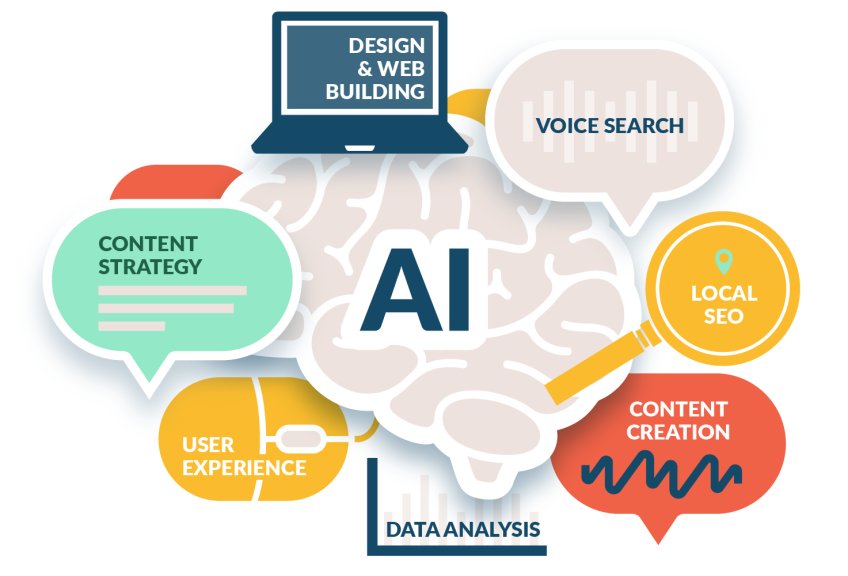
The Rise of Conversational Commerce: How to Win in the ChatGPT Marketing Era
The digital marketing landscape is undergoing a major transformation. With the rise of AI tools like ChatGPT, consumers are no longer relying solely on search engines to discover brands—they're turning to conversational assistants for recommendations.
As a result, traditional SEO strategies focused on clicks and keyword rankings are becoming less effective. In this new era, brand mentions, off-site credibility, and reputation across third-party platforms are becoming the deciding factors in visibility.
This article explores how marketers must adapt by optimizing for AI-generated responses, embracing brand storytelling, leveraging new tools, and preparing for the shift toward conversational commerce.

The Shift in Digital Marketing: From Clicks to Mentions
For years, digital marketing revolved around one core goal - getting the click. Marketers optimized websites and ads to attract traffic through search engines, focusing on metrics like click-through rate (CTR), keyword rankings, and bounce rate.
Success was measured by how many users landed on a page after seeing a link in Google search results. This model worked well when users relied on traditional search engines as the primary way to discover information and make purchase decisions.
However, the landscape is shifting rapidly with the rise of large language models (LLMs) like ChatGPT. Instead of scanning through pages of search results, users are now engaging in conversations with AI to find answers, explore products, and make recommendations.
This conversational interface doesn't prioritize links or ads - it prioritizes mentions, references, and sentiment drawn from a wide range of online sources. In this new paradigm, being mentioned - and positively represented - within the training data and live browsing capabilities of AI becomes more valuable than simply ranking on page one of Google.

How ChatGPT Is Changing Consumer Behavior
The way consumers search for and discover products is evolving, and ChatGPT is at the forefront of this change. Instead of relying solely on search engines, more users are beginning to ask AI tools for personalized recommendations.
This shift is subtle but significant - when a user asks ChatGPT for “the best wireless earbuds under $100,” the AI doesn’t display a list of ads or search results. Instead, it provides curated suggestions based on existing online content, reviews, and consensus from multiple sources. This behavior positions ChatGPT not just as a tool, but as a trusted shopping assistant.
Recent data confirms this trend. Between late October and mid-January, Amazon.com emerged as the most referred domain from ChatGPT, accounting for over 9% of all outbound traffic via the tool’s search functionality.
Although e-commerce domains are currently behind news and academic sites in terms of volume, the shift is underway. As AI-generated recommendations gain credibility, marketers must acknowledge this new path to purchase. The funnel is no longer linear—it begins with a conversation, and brands must ensure they are included in that dialogue.

Why Traditional SEO Is No Longer Enough
Search engine optimization (SEO) has long been the foundation of digital visibility. By optimizing page speed, keyword density, mobile responsiveness, and backlink profiles, brands could position themselves favorably in Google's algorithm.
While these factors still matter, they are no longer sufficient in a world where AI models like ChatGPT summarize information rather than serve up search result links. The new gatekeepers of visibility aren't just ranking pages—they're aggregating trusted mentions and presenting summarized insights.
This means that a perfectly optimized website alone won’t guarantee visibility in AI-generated answers. ChatGPT doesn't just scrape structured metadata; it pulls from long-form content, reviews, blog posts, forums like Reddit, and social signals.
If your brand is invisible or poorly represented in these areas, you may be entirely left out of the conversation—even if your site ranks well on Google. The future of SEO demands a broader content footprint, including off-site content, strong reputation signals, and consistency across channels.

Winning the Mention: The New Metric for Brand Visibility
In the age of large language models, the new battleground for digital marketing isn’t just about being found—it’s about being mentioned. When users interact with tools like ChatGPT, they often seek curated answers, not links.
This changes the dynamics completely. If your brand is not being mentioned in trusted content across the web, there's a high chance you won’t appear in the AI’s response. Visibility is no longer based on who ranks highest—it’s about who’s being talked about, and in what context.
Winning the mention means cultivating a presence in third-party content: blog posts, product reviews, Reddit discussions, podcast transcripts, and even YouTube video summaries.
It’s a more decentralized form of SEO, where reputation, relevance, and recurring references carry more weight than traditional backlinks. Smart brands are proactively working with creators, influencers, and AI-aware agencies to ensure they’re woven into the narrative—because if you're not shaping your brand story, LLMs may fill in the blanks with something less accurate.

The Rise of Brand Storytelling and Off-Site Credibility
As AI models draw conclusions from scattered content across the internet, brand storytelling has become more than a marketing trend—it’s now a technical necessity.
Telling your brand’s story through consistent, value-driven content helps LLMs like ChatGPT better understand what your company stands for, what it offers, and who it's for. Articles, blog posts, case studies, and customer reviews are no longer just trust signals for human readers—they're training signals for AI.
Off-site credibility is equally important. AI systems increasingly rely on forums, Q&A sites, social media, and independent blogs to gauge consensus.
A glowing review on a third-party blog or a discussion thread on Reddit may carry more weight than a polished landing page. That’s why brands need to ensure their message is being echoed by others outside their controlled environment.
Encouraging customers to leave reviews, working with influencers, and seeding helpful content in relevant online communities are all critical to maintaining accuracy and trust in AI-generated summaries.

Tools and Techniques to Optimize for AI Mentions
As brands compete for visibility in AI-generated conversations, understanding how you’re being perceived across the web is critical. This is where AI perception tools like Gumshoe, Brandwatch, Talkwalker, and others come into play.
These platforms simulate thousands of queries or monitor how your brand is discussed in public forums, blogs, and social platforms. They help marketers identify patterns, gaps, and even misinformation that could influence how LLMs present their brand.
In addition to tools, brands should implement tactical actions to increase AI visibility. These include publishing content in a conversational tone, contributing to high-authority platforms, and actively encouraging customer reviews and community mentions.
It’s also valuable to map your brand’s digital footprint across channels to ensure consistency and authority. By tracking and enhancing how your brand is referenced in third-party content, you position yourself to be selected—not just searched—for in the AI future.
To help you get started, here's a comparison table of leading tools designed to monitor, simulate, and optimize your brand’s presence in AI-driven environments:
| Tool | Key Features | Ideal For | Pricing Tier |
|---|---|---|---|
| Gumshoe AI | Simulates LLM queries, identifies perception gaps, AI optimization insights | LLM optimization and AI monitoring | Premium |
| Brandwatch | Real-time brand monitoring, sentiment analysis, influencer tracking | Enterprise-level brand intelligence | Mid to High-End |
| Talkwalker | Visual listening, social trends, AI-powered analytics | Global marketing and PR teams | Mid to High-End |
| Mention | Social media and web listening, alerts for brand mentions | SMEs and agencies | Affordable |
| YouScan | Visual recognition, social media monitoring, customer insight extraction | Visual brands and product companies | Moderate |
| Google Alerts + Manual Review | Basic web monitoring and email notifications | Budget-conscious monitoring | Free |

Preparing for the Future: What Smart Marketers Are Doing Now
While the current shift toward AI-assisted shopping and discovery is still in its early stages, savvy marketers understand the writing on the wall. Although companies like Hawke Media report that they haven’t yet seen a significant drop in organic traffic, they’re proactively adapting strategies to stay ahead.
This includes forming partnerships with AI-specific marketing platforms, auditing their brand's presence in third-party content, and creating conversational content that resonates with both humans and AI models.
Being early to adapt offers a competitive advantage. Brands that wait for traffic to decline before reacting may find themselves struggling to catch up.
Smart marketers are already diversifying their content strategies beyond their own websites—focusing on being talked about in Reddit threads, niche blogs, podcast episodes, and customer review platforms.
They treat each of these as a potential training signal for LLMs, ensuring that when AI is asked about their industry or product category, their brand naturally comes up—credibly and confidently.

Your Brand in the Age of Conversational Commerce
The era of conversational commerce is no longer a futuristic concept—it’s unfolding right now. Large language models like ChatGPT are changing how consumers search, shop, and engage with brands.
Instead of combing through search results, people are seeking curated answers and product suggestions from AI tools that aggregate data across the internet. For marketers, this presents a challenge—but also an incredible opportunity. Those who adapt early can position their brand to not just survive the shift, but thrive in it.
The takeaway is clear: if your brand isn’t mentioned, it doesn’t exist in the AI’s world. Now is the time to build your off-site reputation, craft content that tells your brand’s story, and use tools to track and optimize how you're represented online. In this new digital ecosystem, visibility comes from credibility, relevance, and presence—not just from paid ads or Google rankings.
Think of every piece of content, every review, every conversation as a potential "prompt" feeding into an AI model. Shape those inputs now to influence the outputs later.
Key Takeaways Recap
- Digital marketing is shifting from click-throughs to brand mentions, especially in LLM-generated answers.
- Consumers are beginning to shop via ChatGPT, making conversational commerce a rising trend.
- Traditional SEO needs to evolve—brands must focus on content credibility and off-site visibility.
- Mentions in forums, blogs, and reviews are the new currency of AI-driven brand discovery.
- Brand storytelling and reputation management are now essential for accurate AI representation.
- Marketers should leverage AI perception tools (like Gumshoe or Brandwatch) to monitor and optimize mentions.
- Proactive brands are already adapting, even before traffic shifts become drastic.
- Success in AI-driven marketing will come from shaping how AI models perceive and talk about your brand.